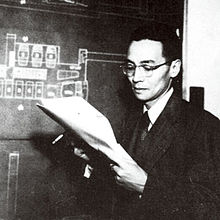Liang Sicheng
Liang Sicheng was a Chinese architect and scholar often known as the father of modern Chinese architecture. His father, Liang Qichao, was one of the most prominent Chinese scholars of the early 20th century. His wife was the architect and poet Lin Huiyin. His younger brother, Liang Siyong, was one of Chinas first archaeologists.
Liang Sicheng was born on April 20, 1901 in Tokyo, Japan, where his father Liang Qichao was in exile from China after the failed Hundred Days Reform. During the waning years of the Qing Dynasty, Chinas last Imperial dynasty, the empire endured a series of foreign invasions and vicious domestic struggles, beginning with the first Opium War in 1840. Foreign powers soon divided China into spheres of influence, while the weak and corrupt Qing Dynasty could do little to stop them. In 1898 the Guangxu Emperor, led by his circle of advisers, attempted to introduce drastic reforms to stem the decay and bring China onto the path to modernity. Liang Qichao, a welleducated and energetic man, was a leader of this movement. However, in the face of opposition from conservatives in the Qing court, the movement failed. The Empress Dowager Cixi, the emperors adoptive mother and the power behind the throne, imprisoned the emperor, and executed many of the movements leaders. Liang Qichao took refuge in J
Source: Wikipedia

